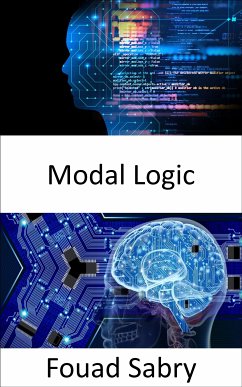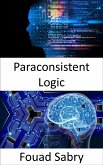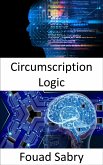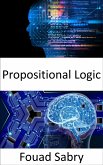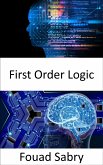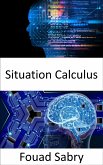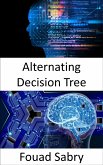What Is Modal Logic
Statements regarding necessity and possibility can be represented with the use of a type of logic known as modal logic. As a method for gaining a grasp of ideas like knowledge, obligation, and causality, it is an essential component of philosophy and other subjects that are closely related to it. For instance, the formula can be used to describe the statement that is known in the epistemic modal logic. Using the same formula, one can express that which is a moral responsibility within the framework of deontic modal logic. The conclusions that can be drawn from modal assertions are taken into consideration by modal logic. For instance, the majority of epistemic logics consider the formula to be a tautology, which is a representation of the concept that the only assertions that may be considered to have knowledge are those that are true.
How You Will Benefit
(I) Insights, and validations about the following topics:
Chapter 1: Modal Logic
Chapter 2: First-order Logic
Chapter 3: Propositional Calculus
Chapter 4: Saul Kripke
Chapter 5: Kripke Semantics
Chapter 6: Temporal Logic
Chapter 7: Epistemic Modal Logic
Chapter 8: Accessibility Relation
Chapter 9: S5 (Modal Logic)
Chapter 10: Dynamic Logic (Modal Logic)
(II) Answering the public top questions about modal logic.
(III) Real world examples for the usage of modal logic in many fields.
(IV) 17 appendices to explain, briefly, 266 emerging technologies in each industry to have 360-degree full understanding of modal logic' technologies.
Who This Book Is For
Professionals, undergraduate and graduate students, enthusiasts, hobbyists, and those who want to go beyond basic knowledge or information for any kind of modal logic.
Statements regarding necessity and possibility can be represented with the use of a type of logic known as modal logic. As a method for gaining a grasp of ideas like knowledge, obligation, and causality, it is an essential component of philosophy and other subjects that are closely related to it. For instance, the formula can be used to describe the statement that is known in the epistemic modal logic. Using the same formula, one can express that which is a moral responsibility within the framework of deontic modal logic. The conclusions that can be drawn from modal assertions are taken into consideration by modal logic. For instance, the majority of epistemic logics consider the formula to be a tautology, which is a representation of the concept that the only assertions that may be considered to have knowledge are those that are true.
How You Will Benefit
(I) Insights, and validations about the following topics:
Chapter 1: Modal Logic
Chapter 2: First-order Logic
Chapter 3: Propositional Calculus
Chapter 4: Saul Kripke
Chapter 5: Kripke Semantics
Chapter 6: Temporal Logic
Chapter 7: Epistemic Modal Logic
Chapter 8: Accessibility Relation
Chapter 9: S5 (Modal Logic)
Chapter 10: Dynamic Logic (Modal Logic)
(II) Answering the public top questions about modal logic.
(III) Real world examples for the usage of modal logic in many fields.
(IV) 17 appendices to explain, briefly, 266 emerging technologies in each industry to have 360-degree full understanding of modal logic' technologies.
Who This Book Is For
Professionals, undergraduate and graduate students, enthusiasts, hobbyists, and those who want to go beyond basic knowledge or information for any kind of modal logic.
Dieser Download kann aus rechtlichen Gründen nur mit Rechnungsadresse in A, B, BG, CY, CZ, D, DK, EW, E, FIN, F, GR, H, IRL, I, LT, L, LR, M, NL, PL, P, R, S, SLO, SK ausgeliefert werden.

